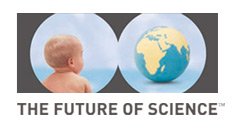John Krebs

Lord Krebs is currently Principal of Jesus College Oxford. He is a zoologist by training, receiving his MA and DPhil from Oxford University. He has taught at the Universities of British Columbia, North Wales and Oxford. Has received many awards and honours for his scientific research in the field of behavioural ecology, including 14 Honorary Degrees and Fellowships of the Royal Society, the US National Academy of Sciences, the American Philosophical Society and the American Academy of Arts and Sciences. Between 1994 he was Chief Executive of the UK Natural Environment Research Council, and from 2000-2005 he was the first Chairman of the UK Food Standards Agency. He is an independent cross-bench member of the House of Lords.
Safe and Healthy Food: whose responsibility?
Our food lives are full of contradiction.
First, think of food safety. One the on hand, the food we eat in the developed world is probably safer and more carefully regulated than ever before, yet people still worry about food safety. These worries, whether about BSE, GM crops, pesticide residues or additives, may lead consumers to spend unnecessary extra money, for instance in buying organic food, in the hope of avoiding the risks. Consumers in the developed world who worry about food safety are partly enjoying the luxury of fear of small risks because they have more than enough to eat, but also their worries are exacerbated by reporting by the press and by suspicion of the responsible authorities and their scientific experts.
Second, think of nutrition and health. For up to a billion people in the world, the problem of nutrition and health is not getting enough to eat or enough of the essential nutrients. For many in the developed world, the problem is eating too much, contributing to the “epidemic of obesity”, or eating the wrong balance of foods, resulting in a dietary contribution to chronic disease that is estimated to account for as much as one third of the risk of cardiovascular disease and cancer. At the same time, looking to the future, there is increasing recognition that the times of plentiful, cheap food in the developed world may be over, with rapidly rising prices for basic food materials.
Third, consider the question of sustainability of food production. It is generally accepted that the industrialisation of agriculture, whilst is has brought cheap and abundant food to many, has done so at a cost to the environment, in terms of water use, soil degradation, carbon footprint, or loss of biodiversity. This is not sustainable. On the one hand, some consumers in the developed world are beginning to respond to these concerns by purchasing food that they perceive to be produced in ways less damaging to the environment (ethical shopping), on the other, the overall patterns of food consumption are heading in a less sustainable direction. Developing countries tend to increase their consumption of resource intensive foods such as beef, whilst consumers in the developed world largely shop for convenience and price: ethical shopping is still a niche market.
Whose responsibility is it to tackle these three problems: safety, diet and health, and sustainability? Where does the balancelie between state intervention and individual choice?





